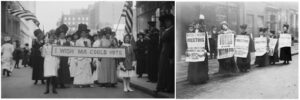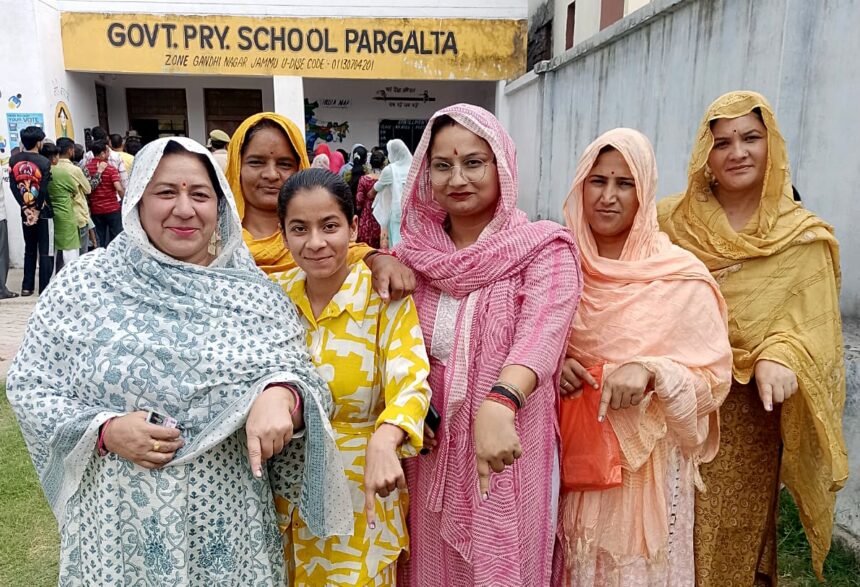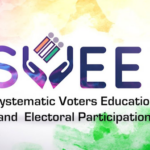EMPOWERING DEMOCRACY
A Historic Journey towards Universal Suffrage and Women’s Representation
Throughout history, the struggle for universal suffrage has been a testament to the resilience of individuals fighting for the fundamental right to vote. Exploring the significance of the vote, delving into the background of suffrage movements, the remarkable journey of women’s fight for the ballot, and the transformative impact it has had on women’s representation in society.
The concept of suffrage, or the right to vote in political elections, has been a focal point in the evolution of democratic societies. In the early days of democracy, voting was often restricted to a privileged few, typically wealthy landowners or men of a certain social standing. This exclusionary approach sparked movements aimed at expanding suffrage to include all citizens, regardless of gender, race, or socioeconomic status.
One of the most prominent suffrage movements in history was the fight for women’s suffrage. Women, who had long been marginalized and denied political agency, mobilized in various countries around the world to demand their right to vote. The movement gained momentum in the 19th and early 20th centuries, as women organized protests, marches, and campaigns to challenge the status quo.

In the United States, the Seneca Falls Convention of 1848 marked the beginning of the women’s suffrage movement, with activists such as Susan B. Anthony and Elizabeth Cady Stanton leading the charge. Despite facing opposition and resistance, these trailblazers persevered, advocating for women’s rights and tirelessly campaigning for suffrage.
Similarly, in the United Kingdom, suffragists like Emmeline Pankhurst and her daughters, Sylvia and Christabel, founded the Women’s Social and Political Union (WSPU) in 1903. Their militant tactics, including hunger strikes and acts of civil disobedience, brought attention to the cause and pressured the government to address women’s demands for suffrage. The relentless efforts of suffragists worldwide eventually led to significant milestones in the quest for women’s voting rights. In 1893, New Zealand became the first self-governing country to grant women the right to vote in national elections, followed by Australia in 1902. In the United States, the ratification of the 19th Amendment in 1920 finally granted American women the constitutional right to vote.
The attainment of suffrage not only marked a triumph for gender equality but also ushered in a new era of women’s representation in politics and society. With the ability to participate in electoral processes, women gained a platform to voice their concerns, advocate for their interests, and shape public policy. The impact of women’s suffrage extended beyond the political sphere, influencing social and cultural norms. By challenging traditional gender roles and asserting their right to political participation, women paved the way for greater gender equality and empowerment. The suffrage movement laid the foundation for subsequent waves of feminism, inspiring future generations to continue the fight for women’s rights.
The fight for universal suffrage, particularly the struggle for women’s suffrage, has been a pivotal chapter in the quest for democracy and equality. The importance of the vote cannot be overstated, as it represents the fundamental principle of self-governance and civic engagement. Through perseverance, courage, and determination, suffragists across the globe have expanded the boundaries of democracy, ensuring that every voice is heard and every vote counts.

Indian scenario
In the vibrant tapestry of Indian democracy, the role of women’s vote stands as a cornerstone of progress and inclusivity. Examining the significance of women’s participation in the electoral process in India, with a special focus on the perspective of Kashmiri women, whose voices resonate amidst unique socio political challenges? India, the world’s largest democracy, prides itself on its commitment to inclusivity and representation.
However, the journey towards gender equality in politics has been marked by hurdles and disparities. Historically, women in India have faced barriers to political participation, including societal norms, cultural biases, and structural inequalities. Despite these challenges, the importance of women’s vote in Indian democracy cannot be overstated. Women constitute a significant portion of the electorate, with their votes holding the power to shape the outcomes of elections and influence policy decisions. As active participants in civic life, women bring diverse perspectives, priorities, and experiences to the table, enriching the democratic process.
The significance of women’s vote is particularly pronounced in regions like Kashmir, where women have historically played a pivotal role in shaping the sociopolitical landscape. In Kashmiri society, women have often been the custodians of traditions, culture, and familial values. However, their political agency has been constrained by various factors, including conflict, and patriarchal norms. Despite these challenges, Kashmiri women have demonstrated resilience and determination in asserting their right to vote and participate in governance. In recent years, initiatives such as voter education campaigns, outreach programs, and women-centric policies have sought to empower Kashmiri women and amplify their voices in the democratic process.
The importance of the women’s vote in Kashmir extends beyond electoral politics, encompassing broader issues of peace, justice, and human rights. As active stakeholders in their communities, Kashmiri women bring unique perspectives to the table, advocating for reconciliation, dialogue, and sustainable development. Moreover, the participation of Kashmiri women in the electoral process serves as a potent symbol of resilience and hope amidst adversity. Despite facing myriad challenges, including political unrest and security concerns, Kashmiri women have consistently turned out to exercise their democratic rights, reaffirming their commitment to shaping the future of their region.
Conclusion
The importance of women’s vote in Indian democracy, including the perspective of Kashmiri women, underscores the principles of inclusivity, representation, and empowerment. As catalysts for change and progress, women play a vital role in shaping the trajectory of Indian society, enriching the democratic fabric with their voices, choices, and aspirations. In the journey towards a more equitable and inclusive democracy, the participation of women, including Kashmiri women, remains indispensable.
Wherever you fall on the political spectrum, exercising your voting privilege is a beautiful thing. You can Vote right, left or centre, just please vote. As the saying goes, vote like your life depends on it.
(Author is a columnist and can be reached at: [email protected])








